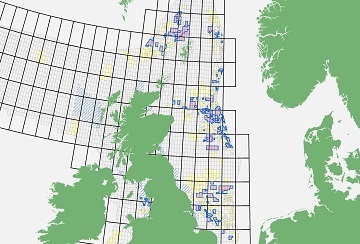The UK Treasury has taken £8 billion in tax from the North Sea in just nine months, according to new research by Aberdeen & Grampian Chamber of Commerce.
The chamber said offshore operators and licensees have been paying an average of £45.6 million in tax per day during the third quarter of the year.
“The UK Government’s tax-take from the sector so far in 2022 is up nearly 700% on last year, following the introduction of a windfall tax in May,” said the chamber.
“The Energy Profits Levy (EPL) increased the effective rate of tax paid by offshore energy firms to 65%, which is more than three-times higher than the standard rate of corporation tax.
“The UK Government is now considering raising this to 70% as Chancellor Jeremy Hunt seeks to plug a £40 billion black hole in the nation’s finances.”
The chamber said analysis of tax receipt data from the Office for National Statistics (ONS) shows that between January and the end of September this year, offshore companies paid £7.9 billion in tax.
It said this is a 692% increase on the previous year, when receipts for the nine-month period totalled £1 billion.
“Earlier this year, the Office of Budget Responsibility (OBR) recently upgraded its estimates for the fiscal years ending March 2023 to 2027, now predicting North Sea revenues to hit £20.2 billion,” said the chamber.
“The EPL comes with a tax sweetener – the Investment Allowance – which sees North Sea producers get a 91p tax saving for every £1 they invest in further oil and gas extraction, something that is now seen as increasingly vital as we seek to protect our national energy security.
“However, despite these investment incentives, the level of tax paid by North Sea firms has still risen dramatically. In September alone, firms paid £1.5 billion in tax, up from just £200 million in the same month in 2021.”
Ryan Crighton, Policy Director at Aberdeen & Grampian Chamber of Commerce, said: “The reason we have started publishing these figures every quarter is simple; we want to see a more reasoned debate about the UK’s energy sector, which is of crucial importance to the economy of Aberdeen and Aberdeenshire.
“North Sea companies are contributing enormously to the financial help being offered to businesses and families, while at the same time working tirelessly to increase the UK’s domestic energy production to keep the lights on this winter.
“The suggestion that their reward for this should be a second windfall tax is, frankly, outrageous.
“The case for a windfall tax on ‘excess profits’ in the energy sector was always that the extra revenue wasn’t planned for and was a consequence of the war in Ukraine.
“However, that same conflict has sent inflation soaring in the UK, which in turn has driven up interest rates and therefore the cost of our mortgages. So, you could make the exact same case for a windfall on bank profits.
“And what about online retailers, big pharma and supermarkets, who all prospered as a consequence of the CV19 pandemic? That wasn’t planned for either yet there has been no public clamour for or any increase in tax rates for them. The list goes on.
“And that is the problem with windfall taxes. They are subjective. The UK Government is saying it’s ok for one sector to make a windfall, but not another.
“And the one which is being penalised, the oil and gas sector, is probably the most cyclical of them all. One which needs good times to help it survive the bad.
“At a crucial juncture when we need more investment than ever before in our energy sector, this feels like a gamble by the UK Government. If singling out this one industry backfires, then there will be huge consequences for the North-east of Scotland.”
The chamber said North Sea oil and gas companies pay tax profits from production in the UKCS at a rate of 40%, comprising both Ring Fence Corporation Tax plus a Supplementary Charge (RFCT/SC).
The Energy Profits Levy increased this rate to 65%, effective from 26th May 2022.
The chamber said that separately, Petroleum Revenue Tax (PRT) is a tax on the profits from oil and gas production in the UK, but only applies to fields that were approved before 16 March 1993. These are known as “taxable fields.”
PRT was permanently zero-rated from January 1, 2016. It was not abolished because some companies still require access to their tax history for carrying back trading losses and decommissioning costs.
